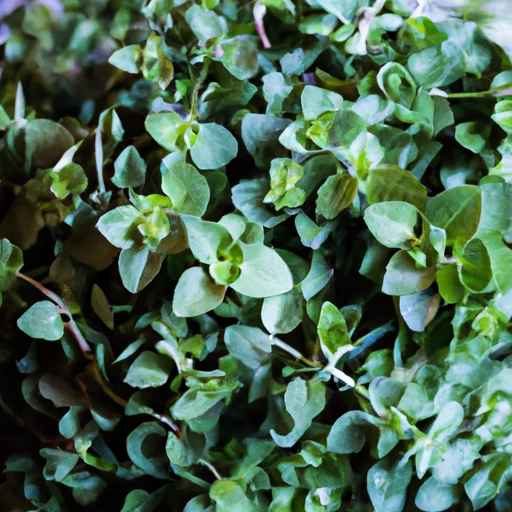Marjoram
Description

Marjoram, known scientifically as Origanum majorana, is a perennial herb with sweet pine and citrus flavors. It is a member of the mint family and is closely related to oregano, which it is often confused with. Marjoram is a versatile and aromatic herb that enhances the flavor of many dishes with its delicate warmth.
Common uses
Marjoram is commonly used in seasoning blends, such as herbes de Provence and za'atar, as well as in marinades, dressings, and sauces. It is also a popular ingredient in sausages, soups, and stews.
Nutritional value
Calories
Marjoram is low in calories, with approximately 6 calories per teaspoon (1 gram/0.035 ounces).
Protein
It contains about 0.2 grams (about 0.007 ounces) of protein per teaspoon.
Fat
Marjoram is virtually fat-free, with only a trace amount per serving.
Carbohydrates
There are about 1.3 grams (approximately 0.046 ounces) of carbohydrates per teaspoon of marjoram.
Vitamins
Marjoram is a good source of vitamins such as vitamin K, vitamin C, and vitamin A.
Minerals
It is also rich in minerals like iron, calcium, and magnesium.
Health benefits
Marjoram may offer various health benefits, including digestive support, anti-inflammatory properties, and potential improvements in cardiovascular health. Its antioxidants may also help in protecting the body from oxidative stress.
Potential risks
While marjoram is generally considered safe for culinary use, excessive consumption may lead to adverse effects, especially for pregnant women or individuals on certain medications.
Common recipes
Marjoram is used in many cuisines including French, Italian, Middle Eastern, and American. It is often added to recipes such as roasted meats, vegetable dishes, tomato-based sauces, and bean soups.
Cooking methods
This herb is best added towards the end of cooking to preserve its delicate flavor. It can be used fresh, dried, or as an essential oil.
Pairing with other ingredients
Marjoram pairs well with meats such as chicken, beef, and pork, as well as vegetables like potatoes, peas, and carrots. It also complements other herbs and spices like basil, thyme, and black pepper.
Summary
Marjoram is an aromatic herb that has been celebrated throughout history for its culinary versatility and potential health benefits. While it's commonly used in a variety of dishes, it should be consumed in moderation due to the potential risks associated with excessive intake. Nevertheless, marjoram remains a beloved spice that can elevate the flavor profile of countless recipes.